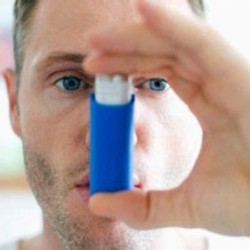ASTHMA MEDICATIONS POSSIBLE TREATMENT FOR HAIR LOSS
Posted by Manny Y on 8th Apr 2015
Asthma Medications Possible Treatment for Hair Loss
 Good news for all men, women and children who are suffering fromhair loss. Researches from the University of Pennsylvania have found the root cause and a possible treatment for hair loss.
Good news for all men, women and children who are suffering fromhair loss. Researches from the University of Pennsylvania have found the root cause and a possible treatment for hair loss.
For Four long years, the researchers at Perelman School of Medicine may have discovered one of the main causes of hair loss and a most probably a treatment for hair loss. During the study, multiple scalp tissues where collected form patient who suffer from hair loss. Then these tissues are tested for a protein called PGD2 or prostaglandin D2. It was discovered that the amount PGD2 are three times higher on bald areas of the scalp, then on areas with no hair loss.
They believe that PGD2 prevents the cells from maturing and retards cellular growth. By inhibiting PGD2, hair will eventually grow back. They claim that a new type of treatment for hair loss will be available in about five years.
What are prostaglandines?
Prostaglandine is one of many hormone like substances that take part on a wide range of body functions. This protein is responsible for the constriction and dilation of blood vessels, contraction and relaxation of smooth muscles, control of blood pressure and regulation of inflammation.
In this case, elevated levels of prostaglandine D2 in the scalp can be responsible for androgenetic alopecia or male/female hair loss. Also, PGD2 causes vasodilation, regulate body temperature, and accountable for the contraction of the bronchial airways, causing bronchial asthma.
Possible treatment for hair loss
Bronchial asthma and hair loss has been around for quite a long time. But the approach of treating hair loss by using anti asthma drugs is quite new. Typically, anti asthma drugs are in tablet or aerosol form. Of course, these drugs can’t simply be crushed and applied or sprayed on the scalp. These medications have to be reformulated for topical use. For the mean time, experiments have yet to be done on mice, then clinical clinical trials on man, before distribution to the general public.

